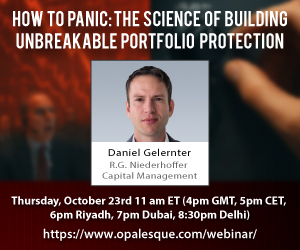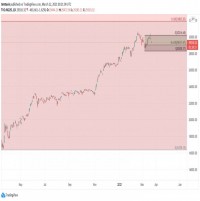|
Opalesque Industry Update - Hedge fund observers agree that the 2/20 fee structure is the exception to the rule. Fees, in general, will continue to be under pressure unless the manager is offering a strategy that is capacity constrained or unique. "Only the best pedigree, highest profile managers are getting 2/20. Fees are as low as 1/10," says one industry veteran. The average fee structure is currently estimated by HFR at 1.55/18.39. According to a recent survey, over 68% of managers are offering some type of option for discounted fees. 34% are offering two or more. Some say the average fee paid on industry assets has declined much more than reported in industry surveys, perhaps as much as 15% lower than commonly believed. Factors Pressing Fees Lower Lois Peltz, president of Infovest21 and author of the report, said, "Poor hedge fund performance, some managers cutting fees, significant fee pressure from many hedge fund investor channels particularly large public pension funds with allocations over $75 million, consultants dissecting returns into alpha and beta, different share classes, founders' fees, funds of one and '40 Act funds are some of the factors pressuring fees down." Aligned interests It is important for managers' incentives to be aligned with clients' with terms or restrictions that are appropriate and justified. Going forward, fees will go down but investors will likely need to give up on the liquidity side as managers want longer term capital. Fee structures will become more diversified. Managers earlier in their development will be pressured to offer fee concessions as well. Large institutional investors want liquidity terms to match the underlying securities. Whereas after 2008, it was a death sentence for a hedge fund manager to have a gate, there is now a swing back the other way. "For strategies that are less liquid, some institutions are asking the hedge fund to establish a gate. These institutions view themselves as longer term investors. They're concerned that less sophisticated investors might withdraw at the wrong time and they want to be protected against them," says a marketer to institutions. Ten years ago, most hedge funds had at least a one-year lock-up. Today, that is the minority view. Many managers are moving from one-year hard locks to one-year soft locks i.e. if an investor withdraws money before the year, he may pay a penalty to the fund. One lawyer observers that the largest institutional investors are focusing on the finer points surrounding liquidity issues. What type of transparency is provided? Is there a hard lock or a soft lock? Under what circumstances can you redeem? Is there a gate and how does the gate operate? If a key person leaves or gets sick can you redeem even if subject to a hard lock-up? What if the manager receives a Wells notice, is convicted of a felony, or found to have committed a securities violation? One consultant suggests:
• Incorporating a hurdle in the performance fee calculation From the new Infovest21 White Paper, The Real Story: Hedge Fund Fees and Terms Press release Bg |
Industry Updates
Infovest21: hedge fund fee structures will become more diversified
Friday, July 26, 2013
|
|





 RSS
RSS









